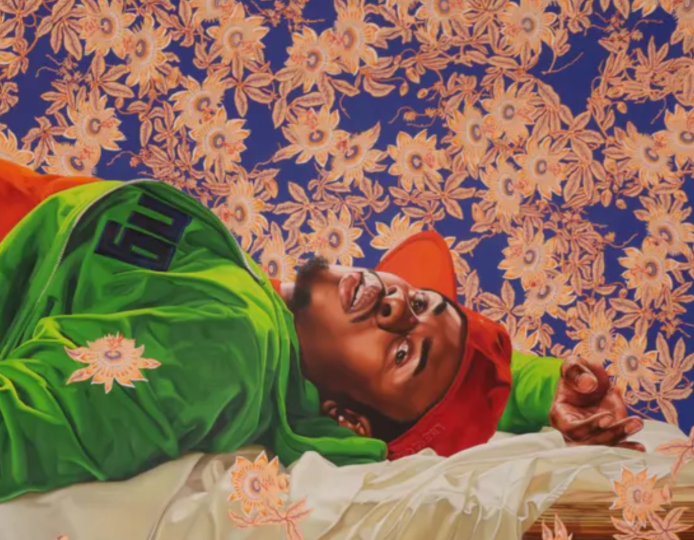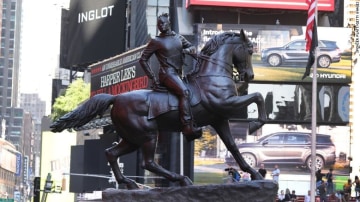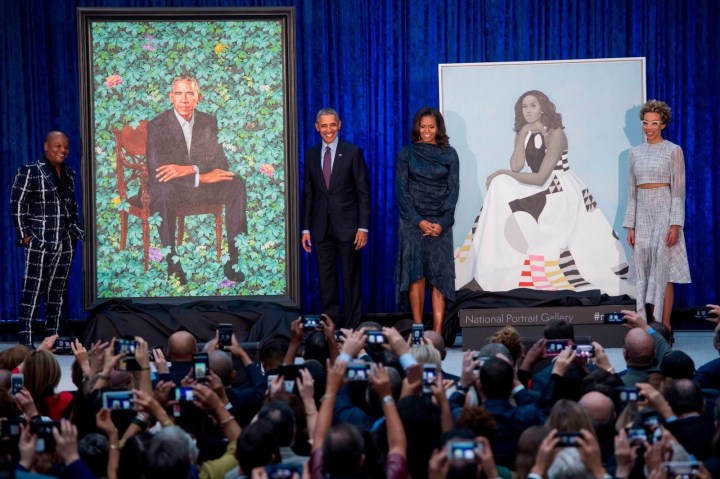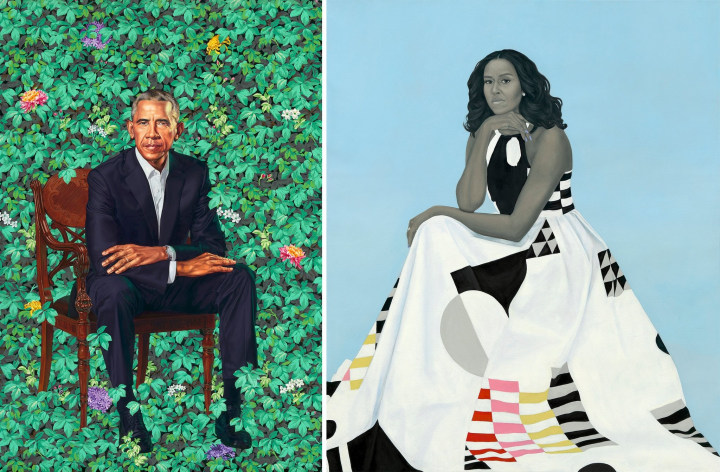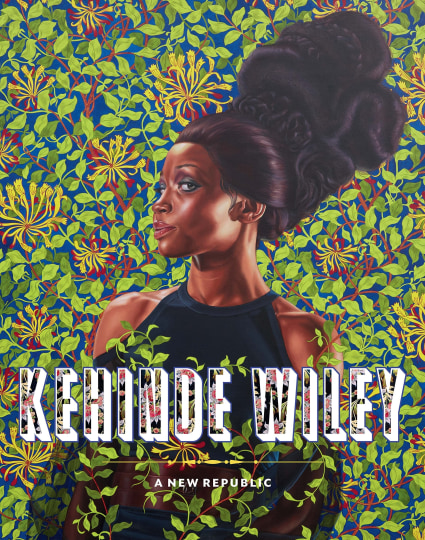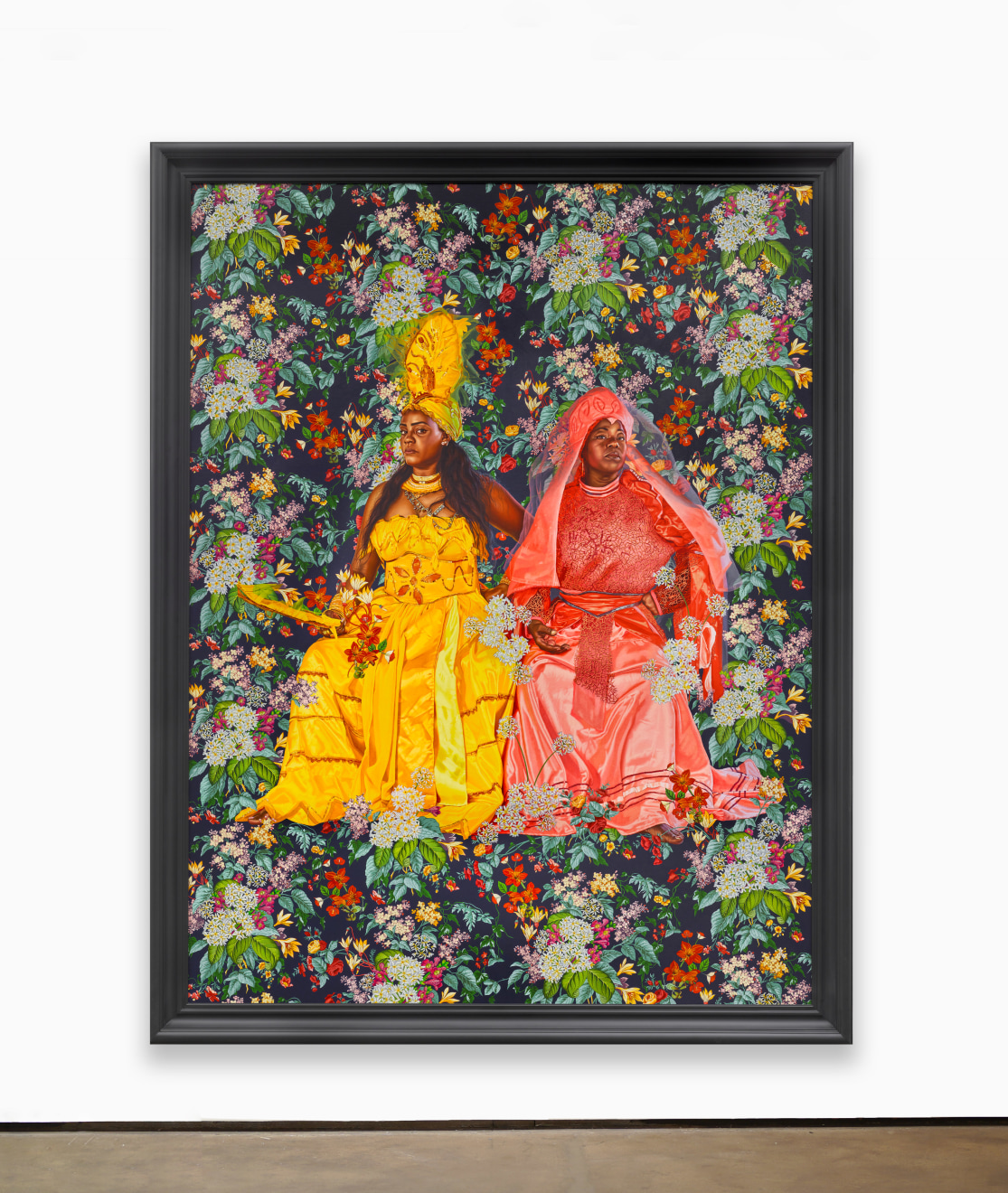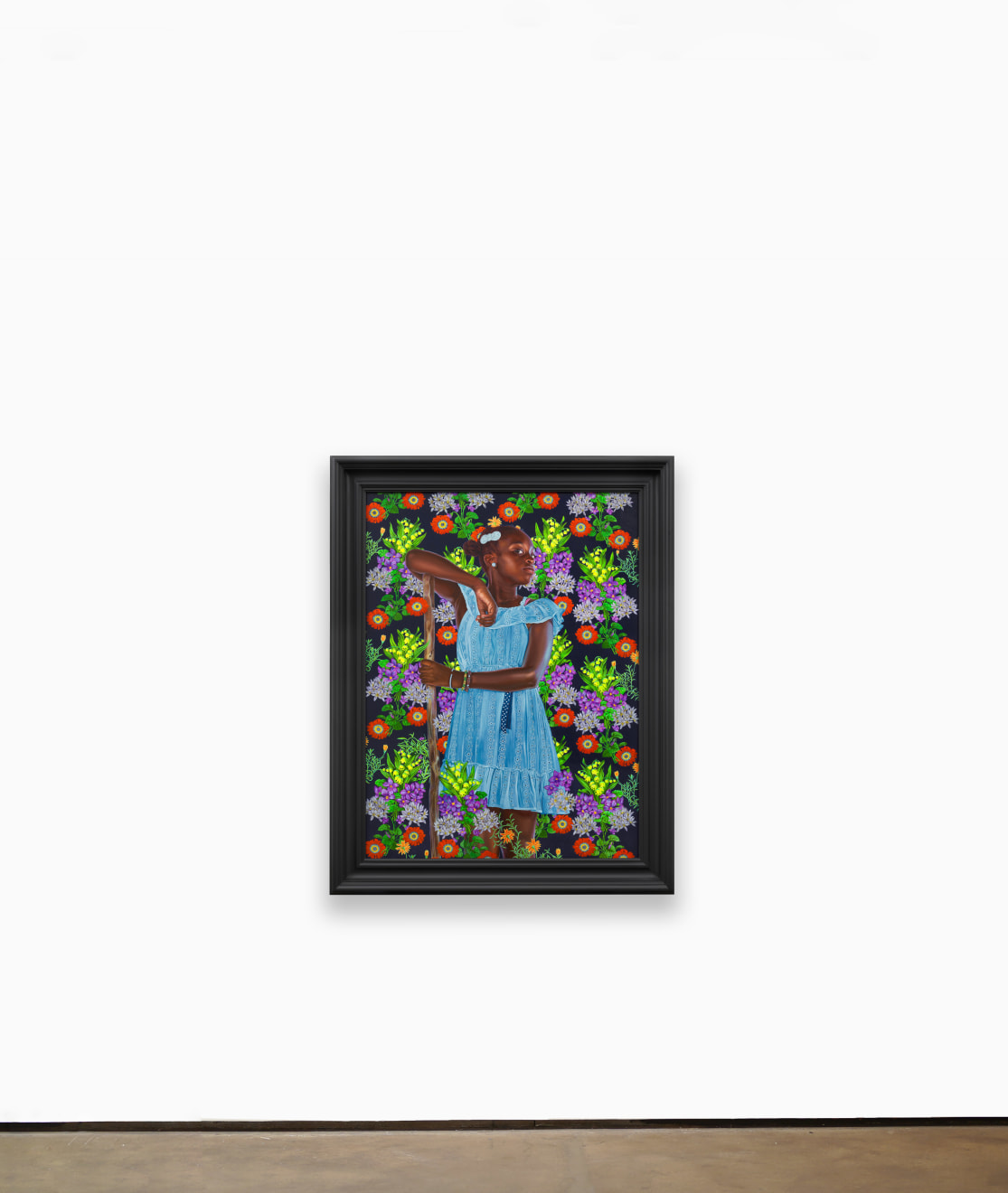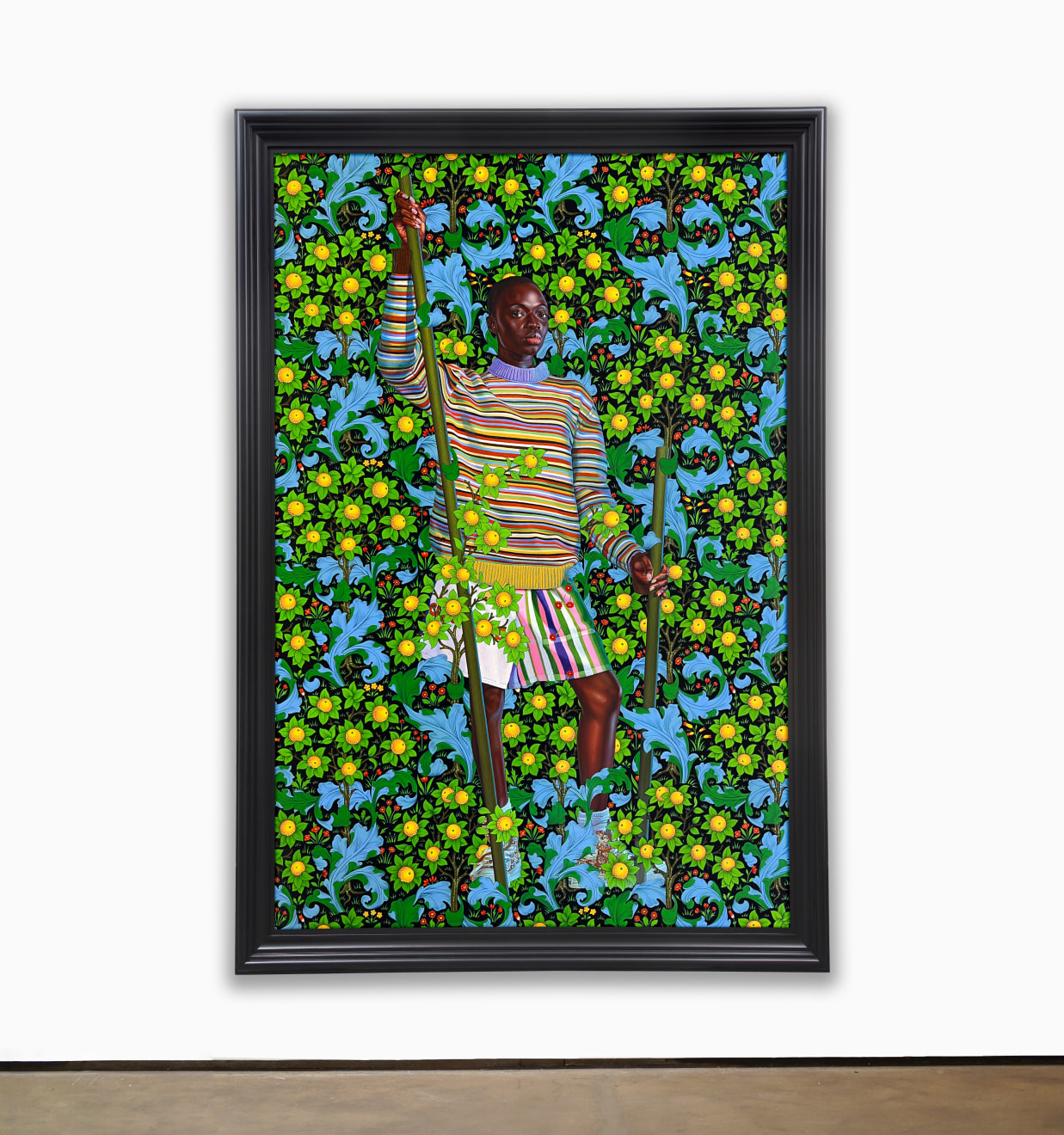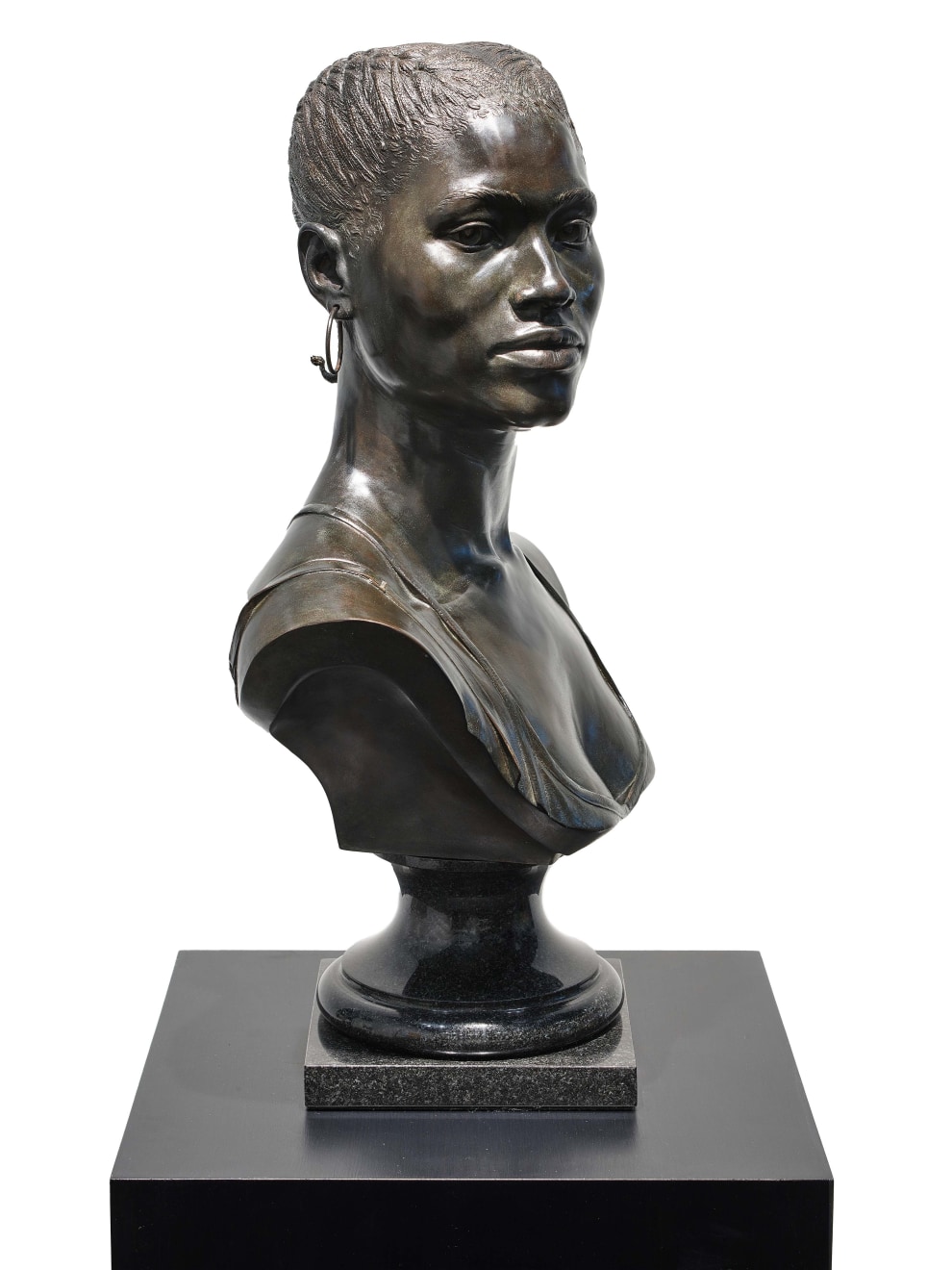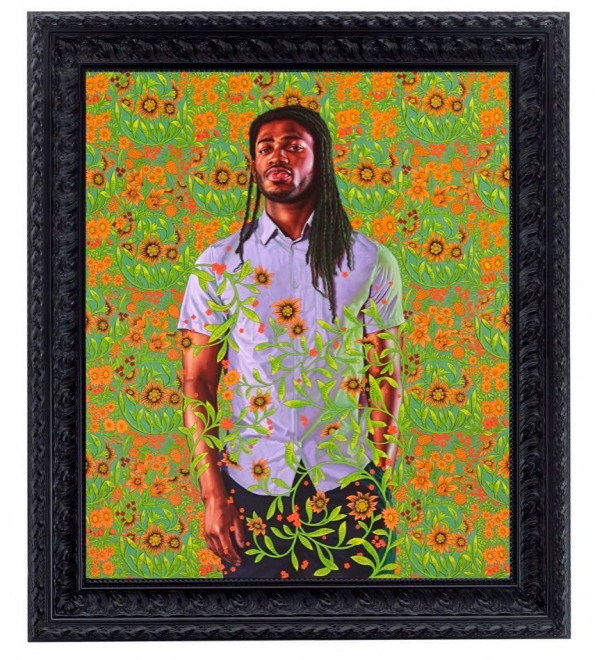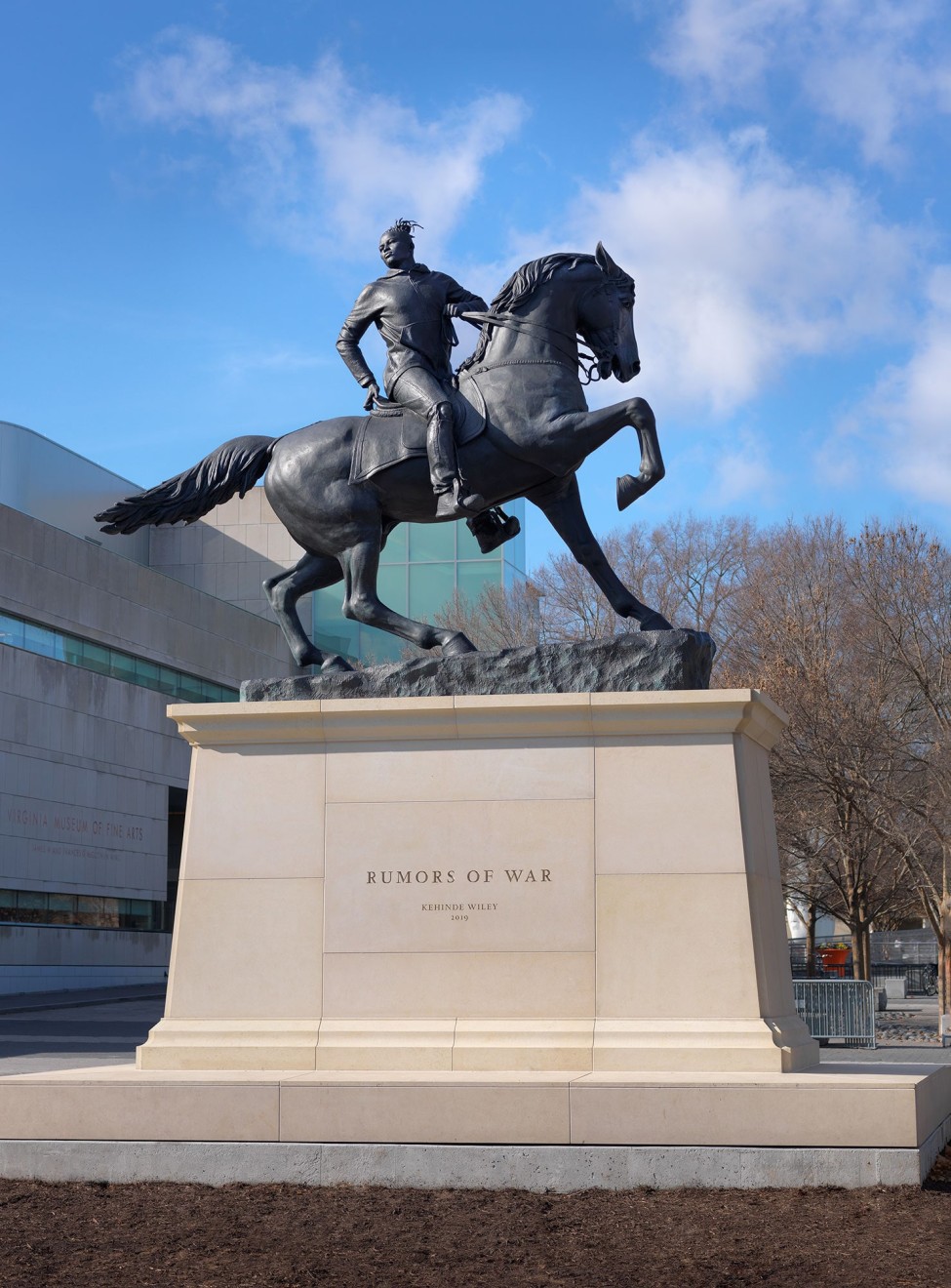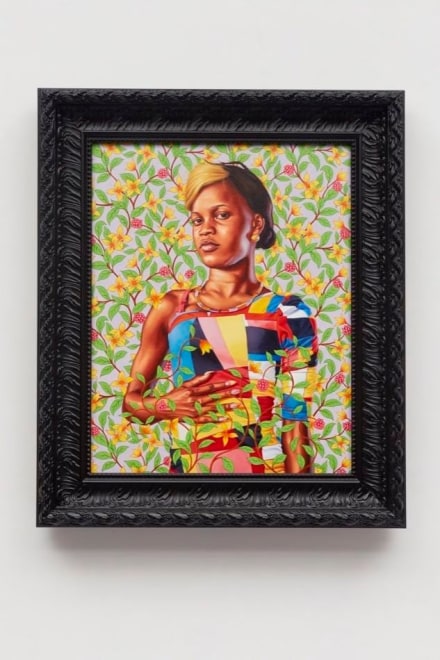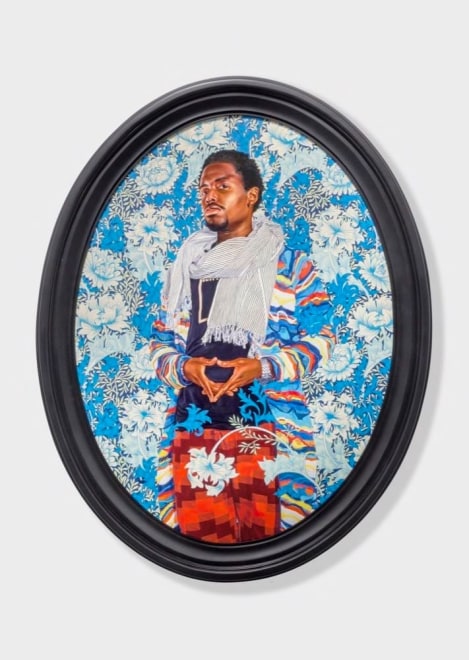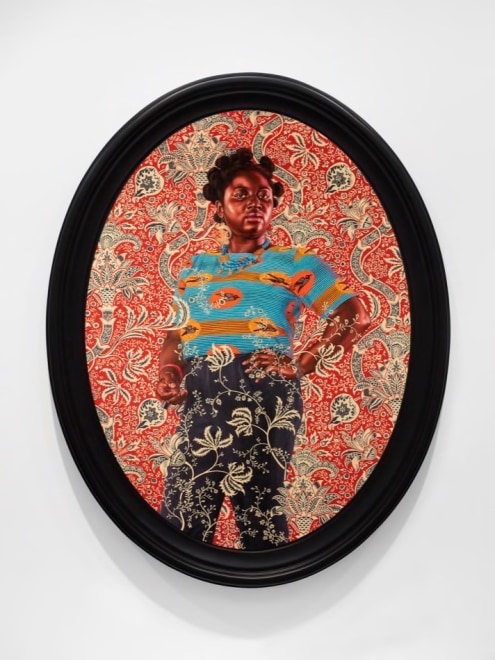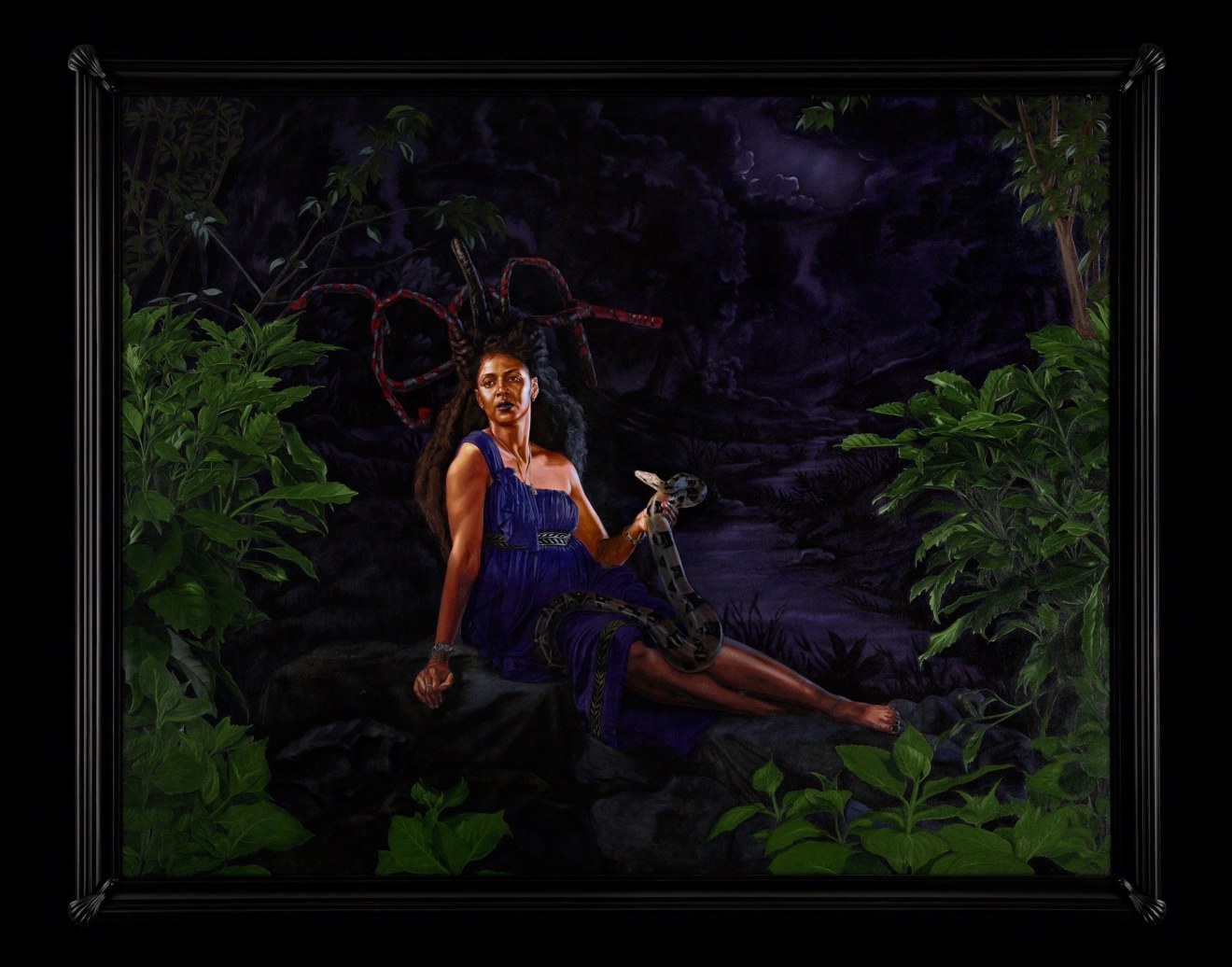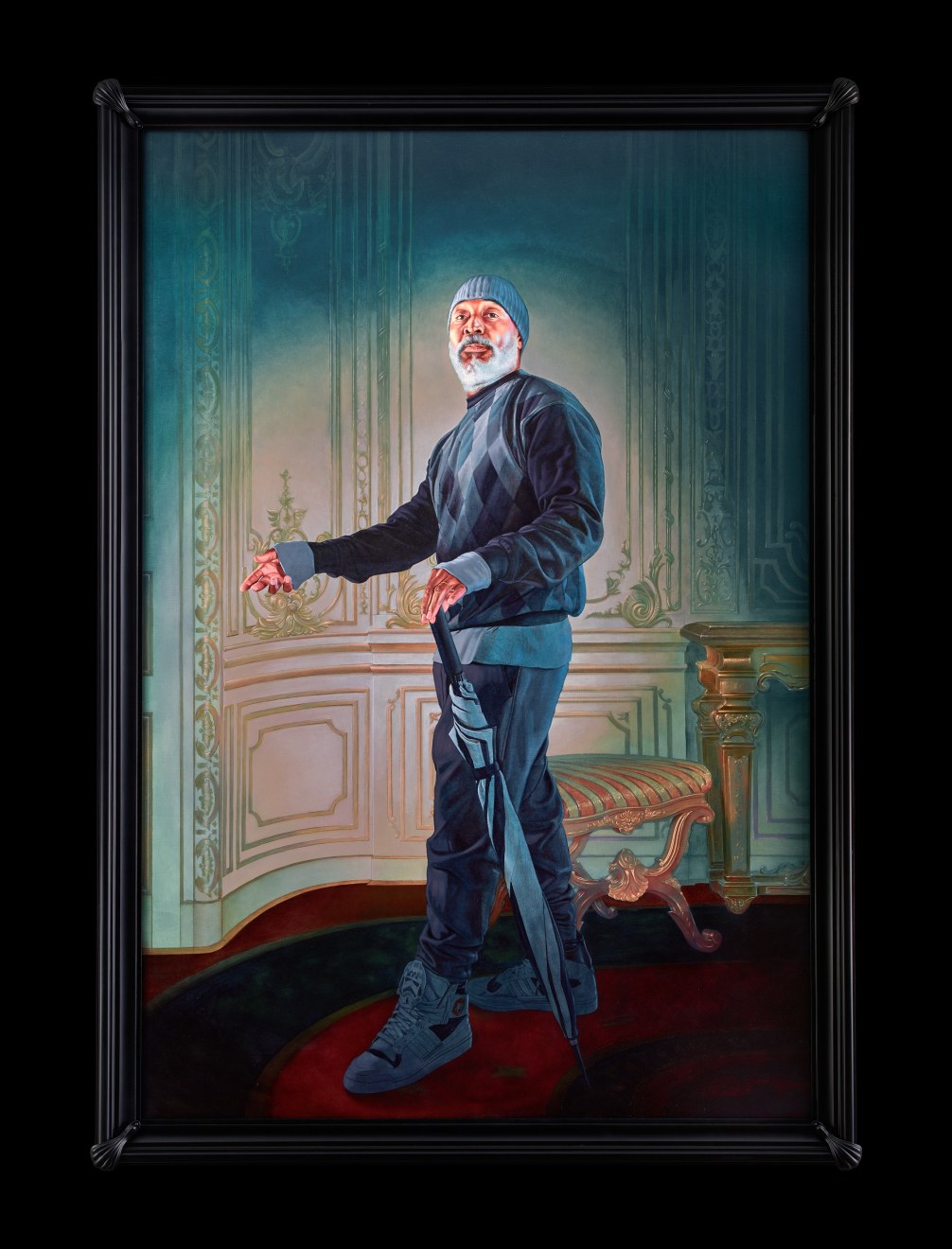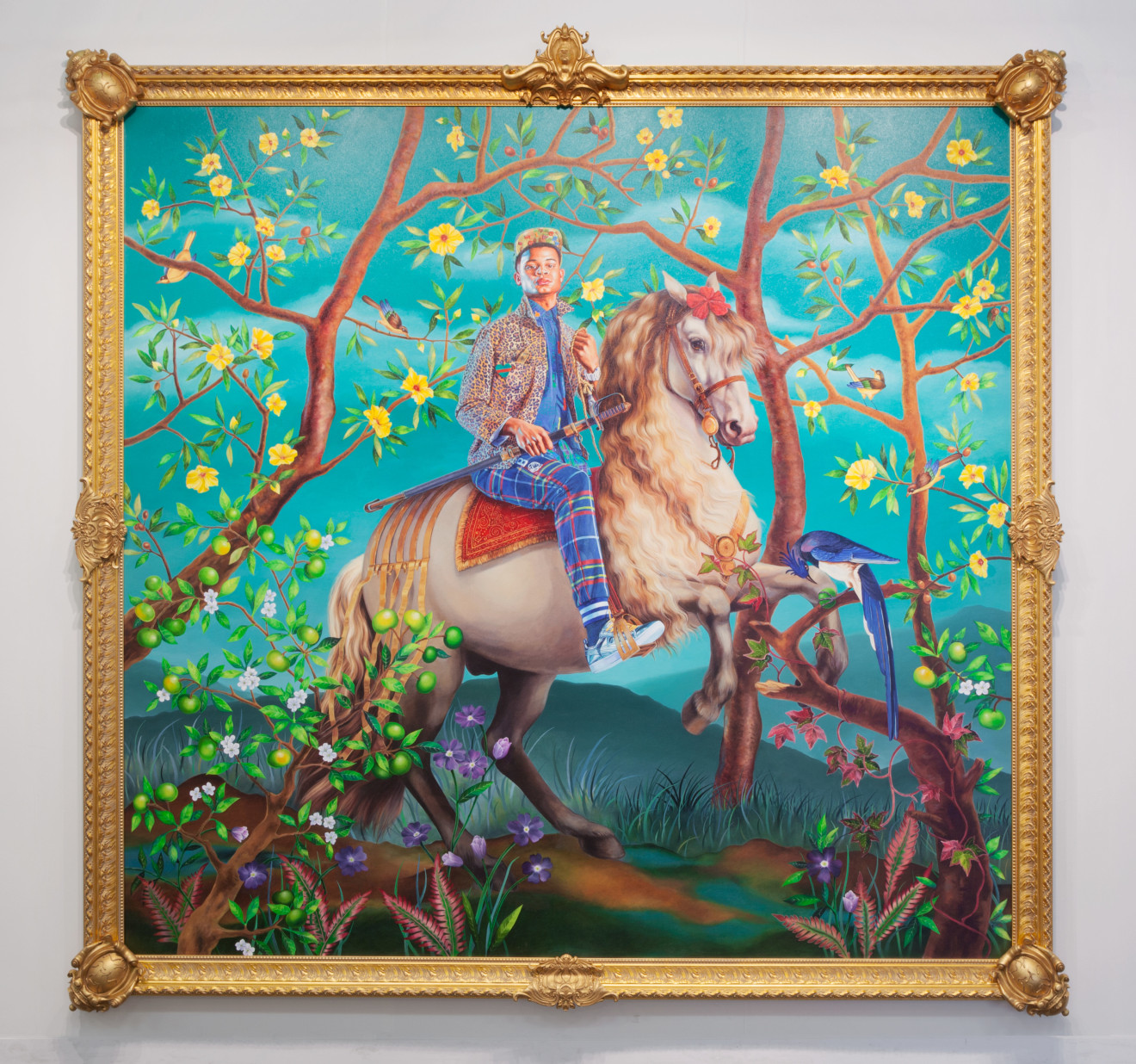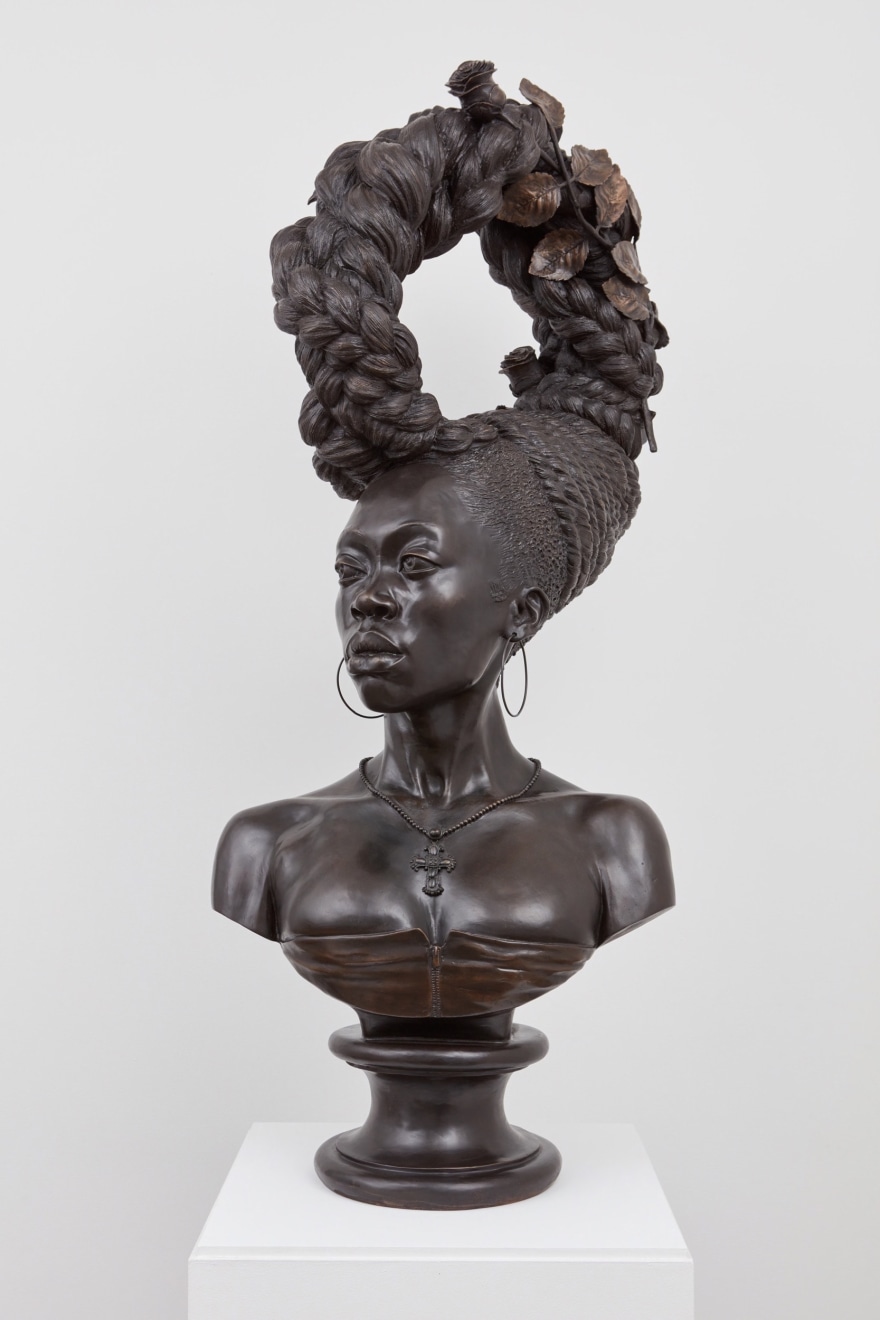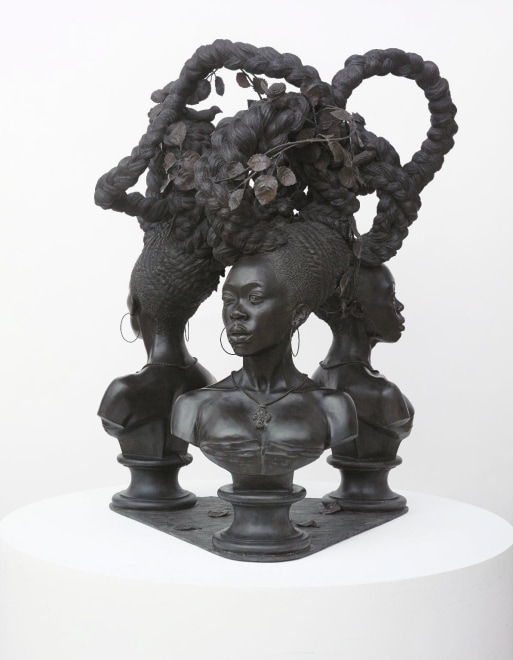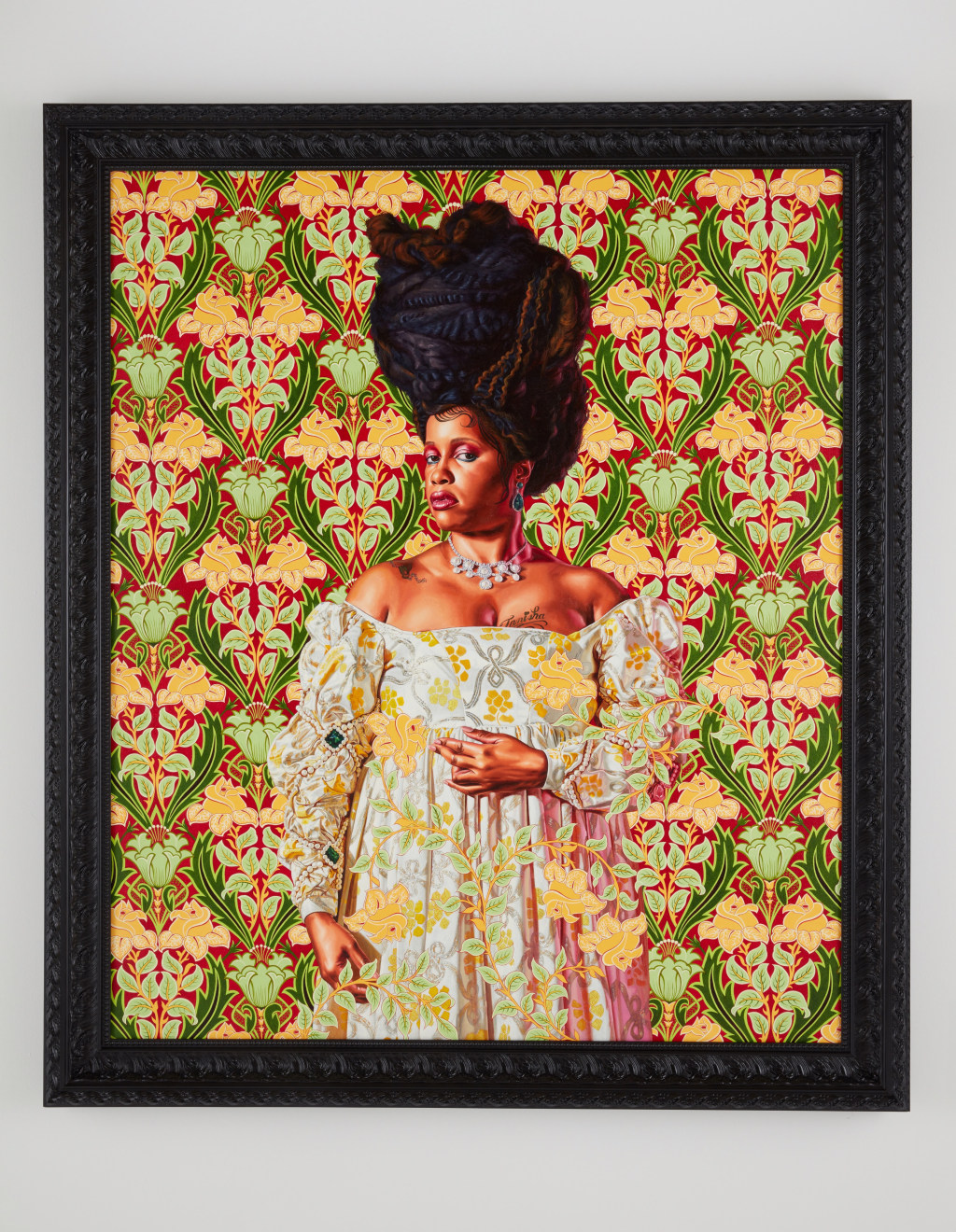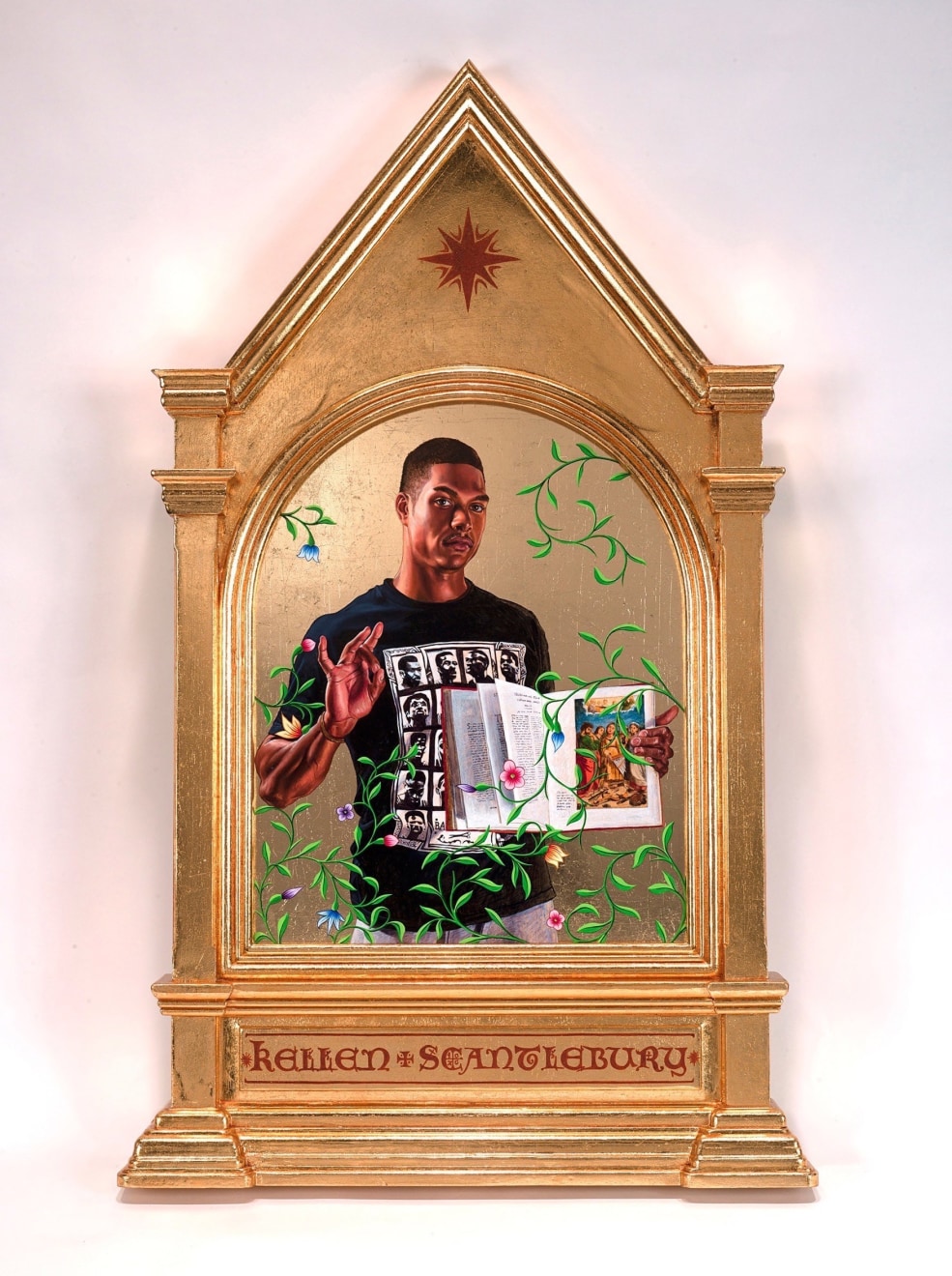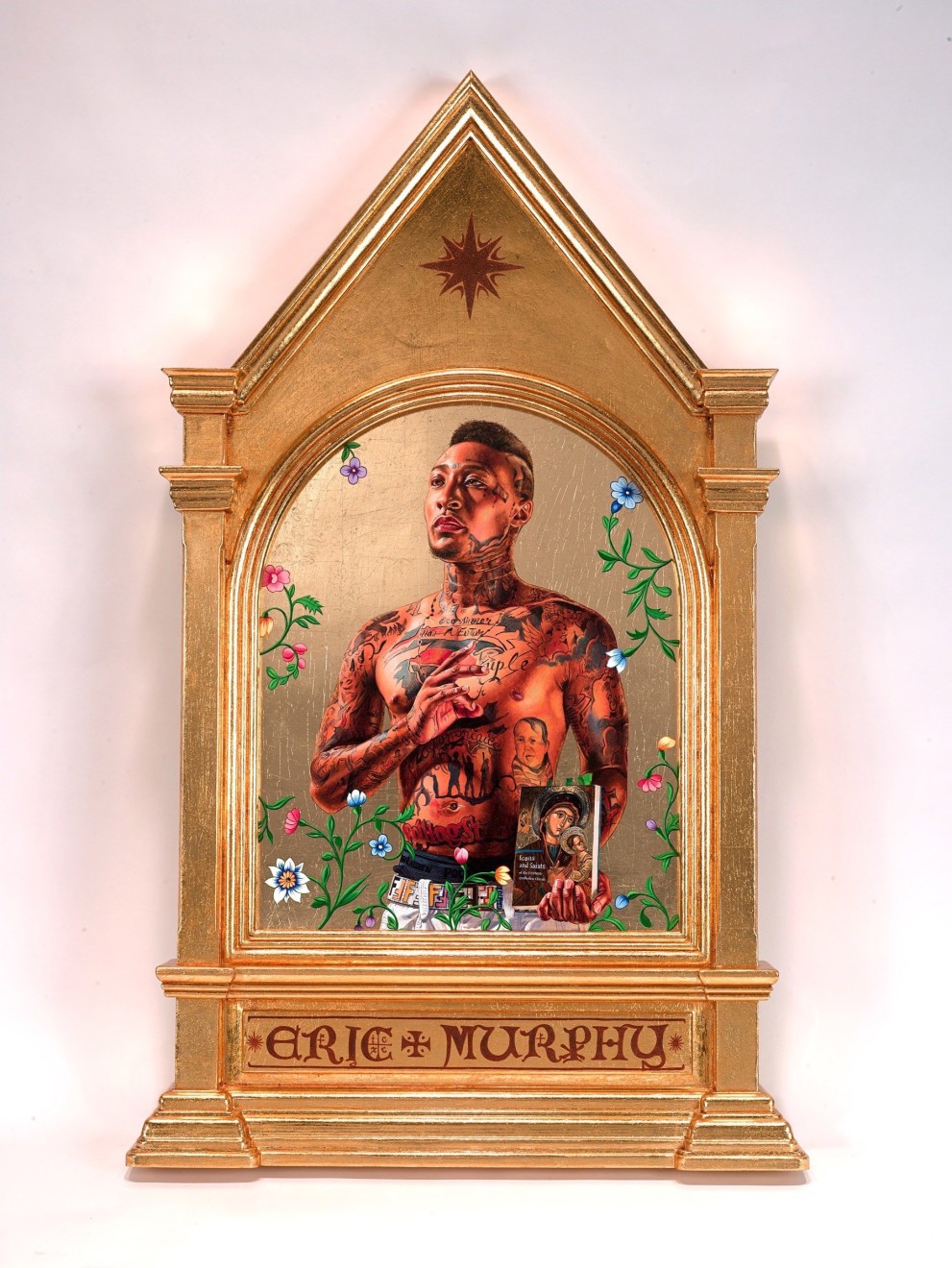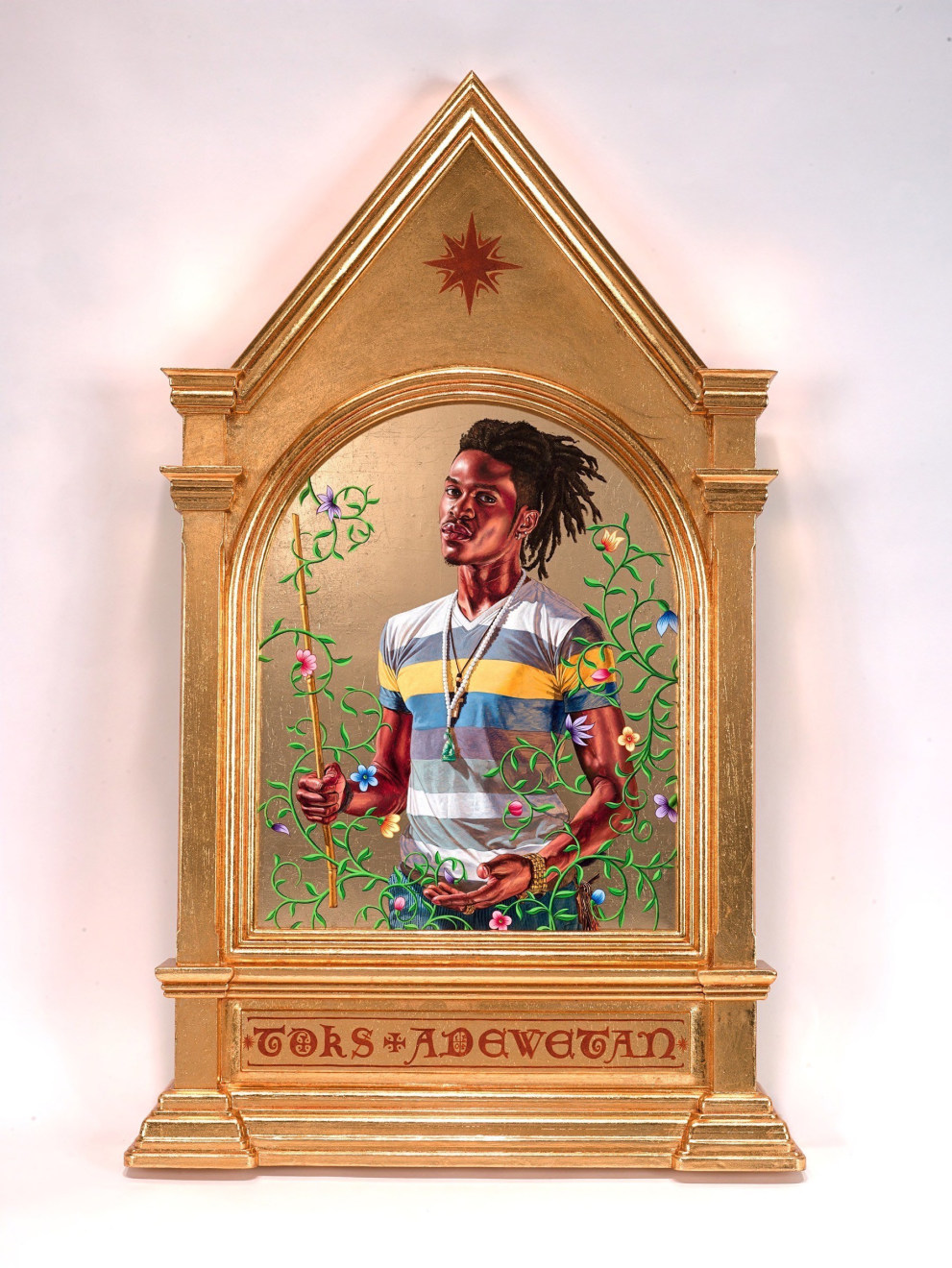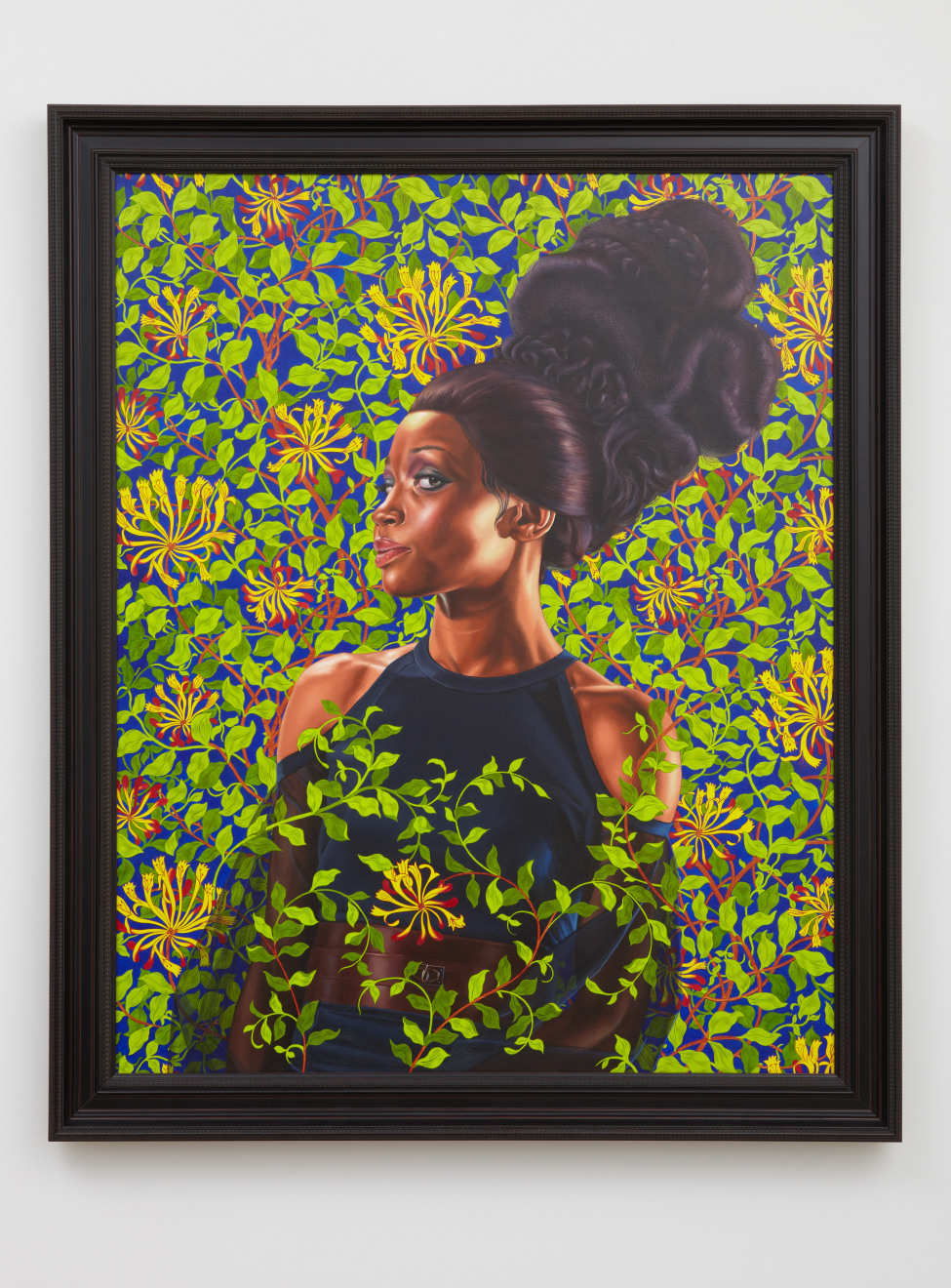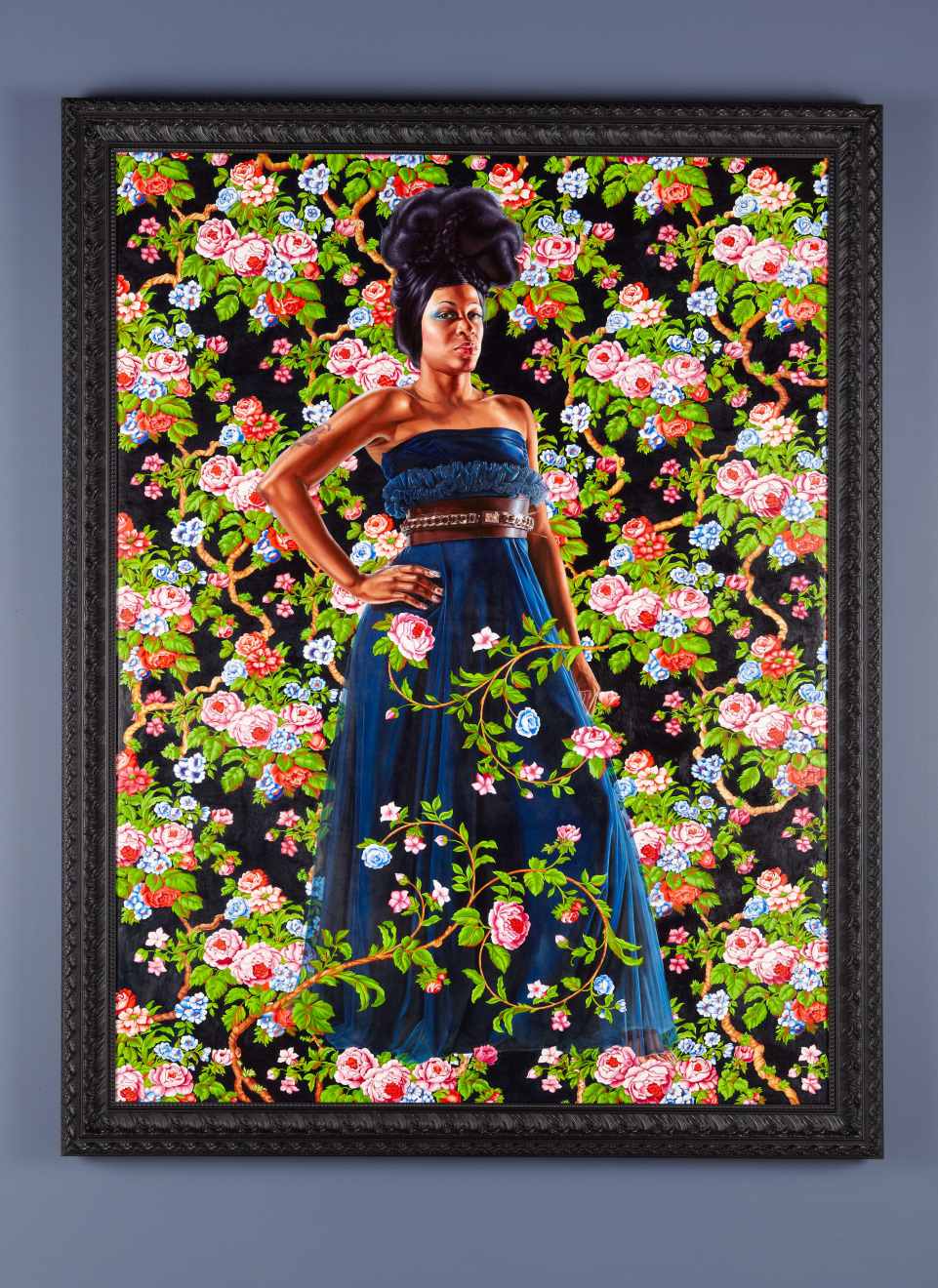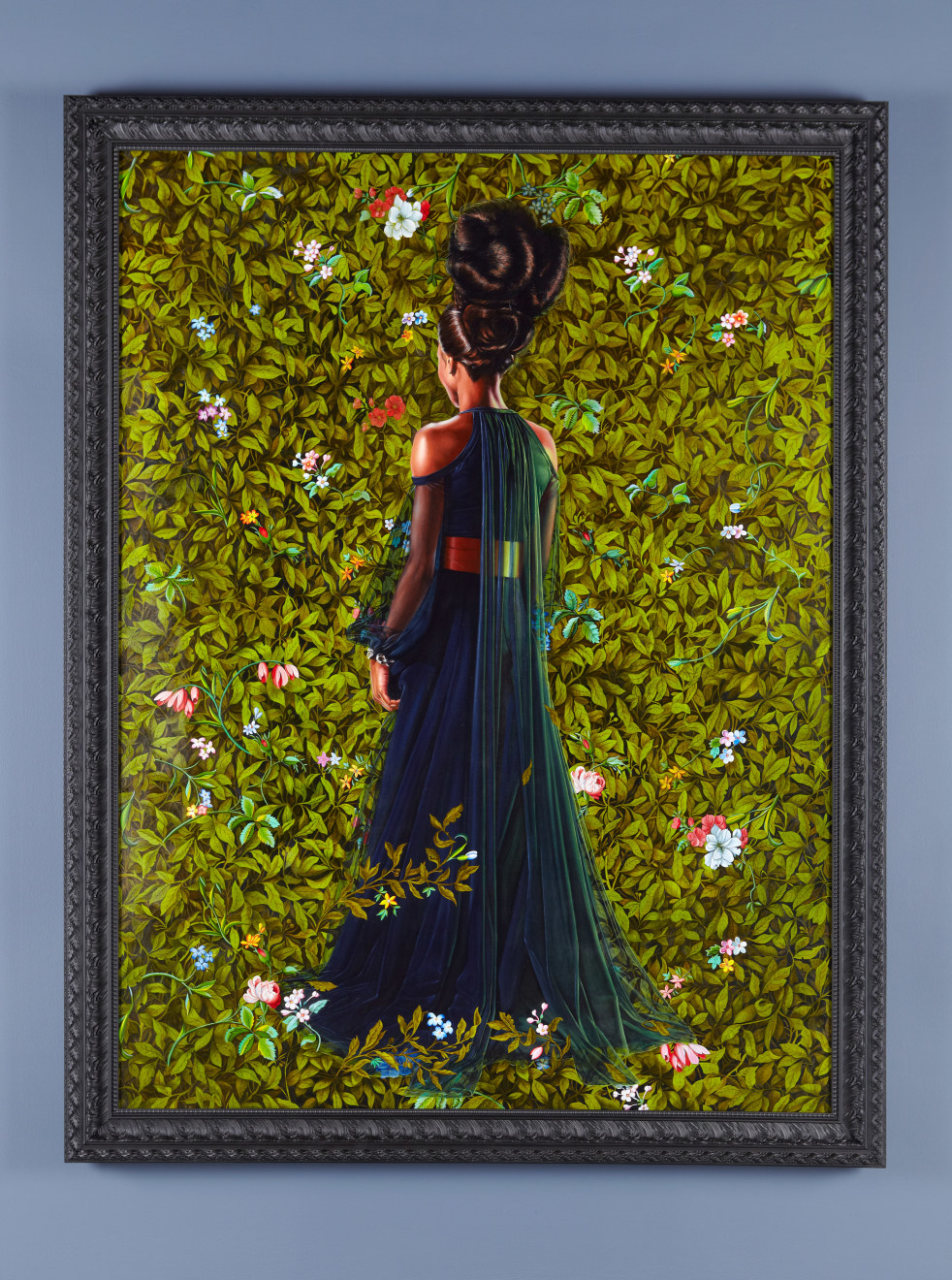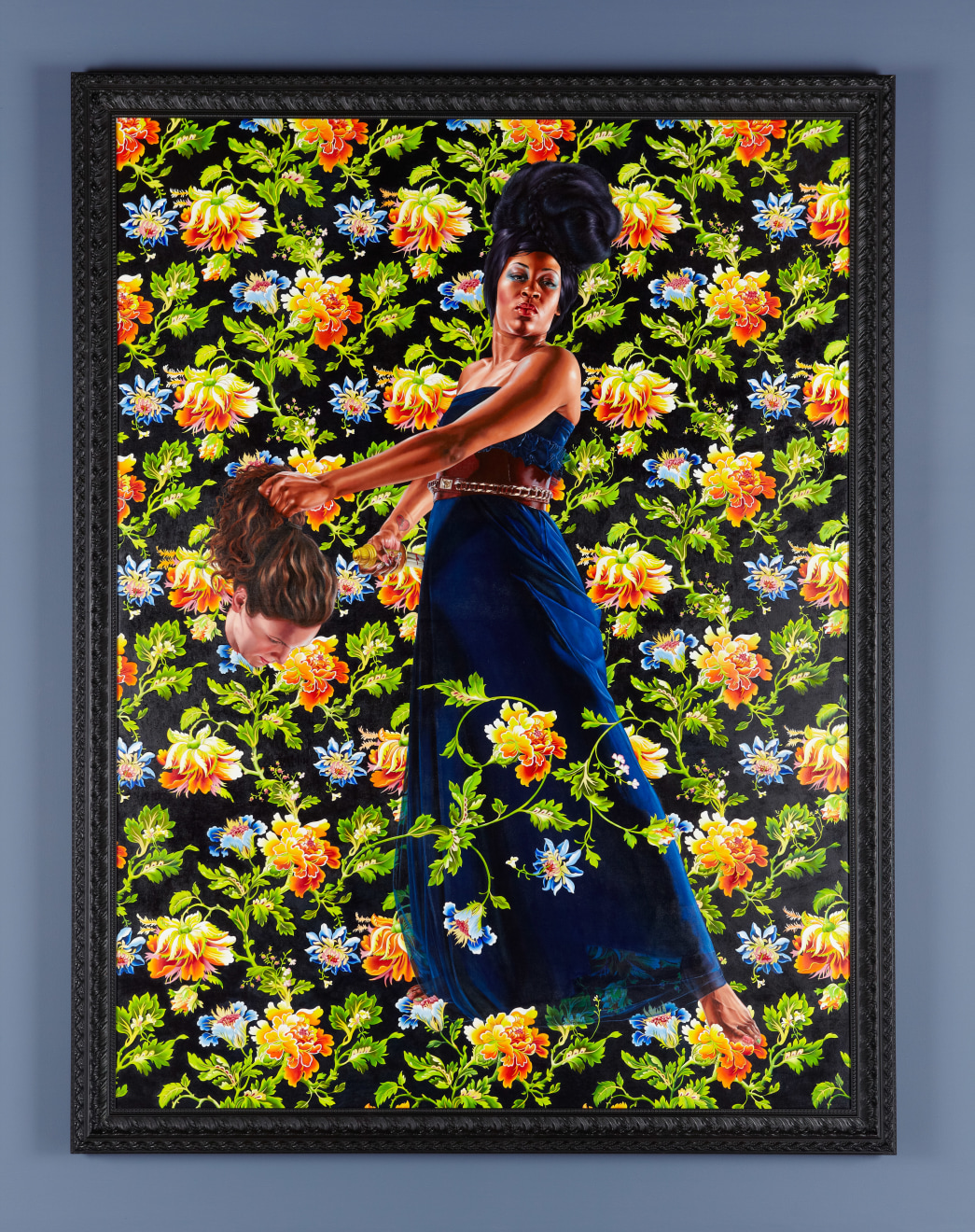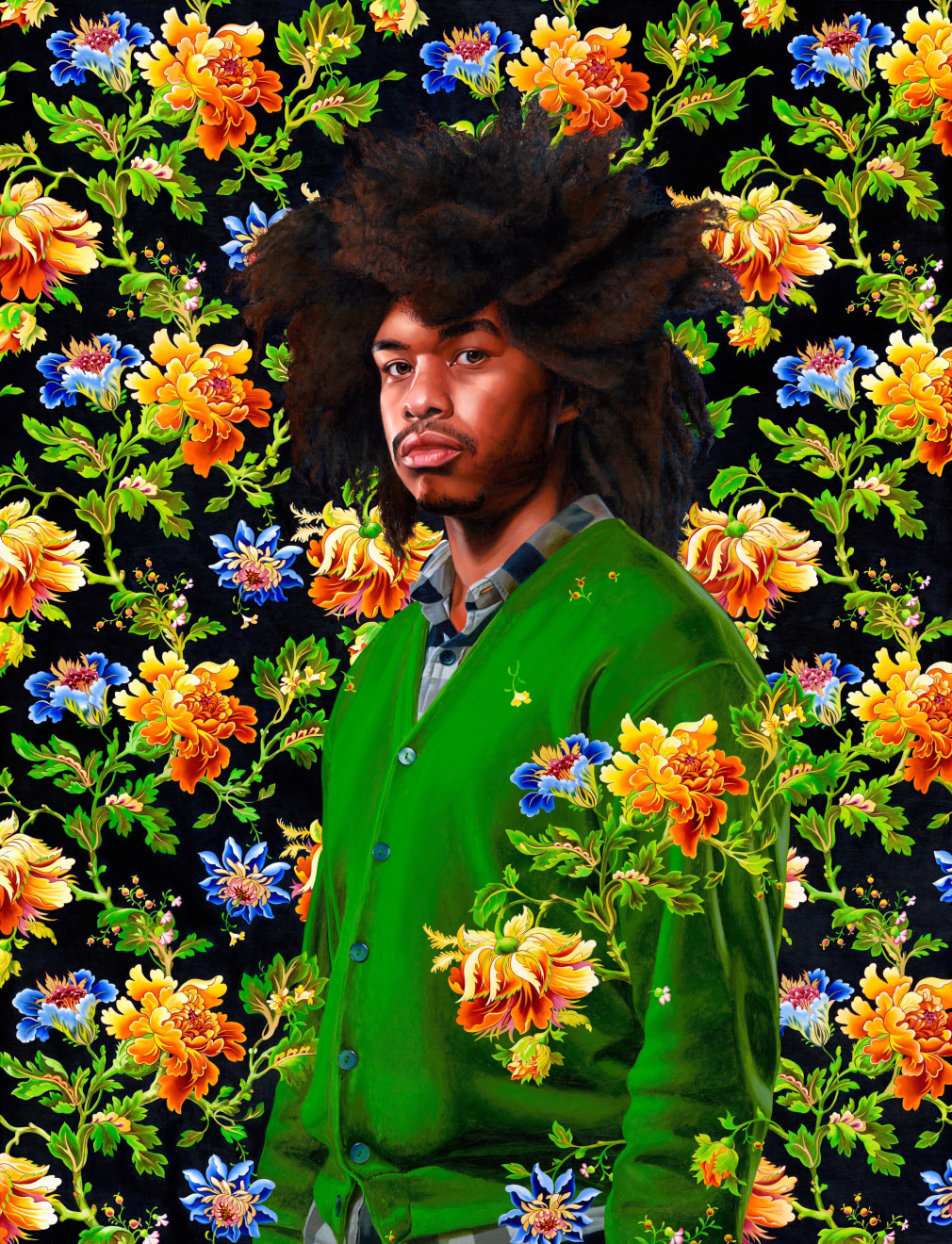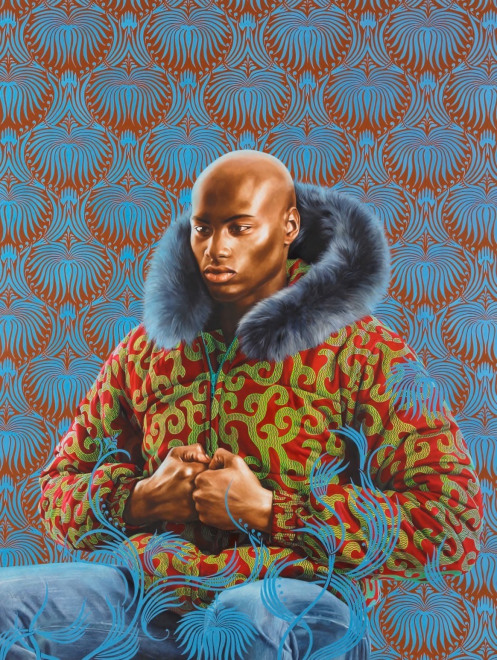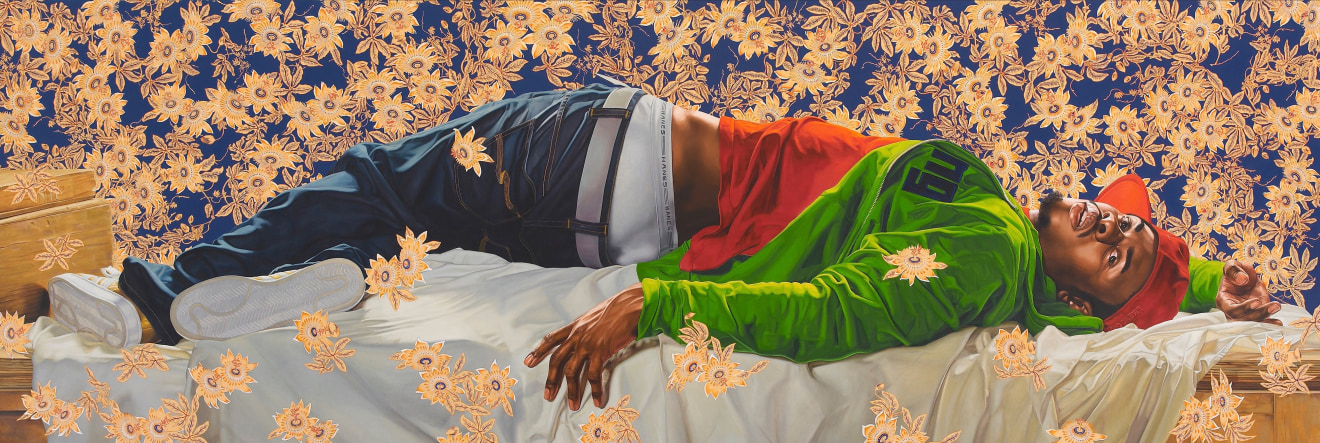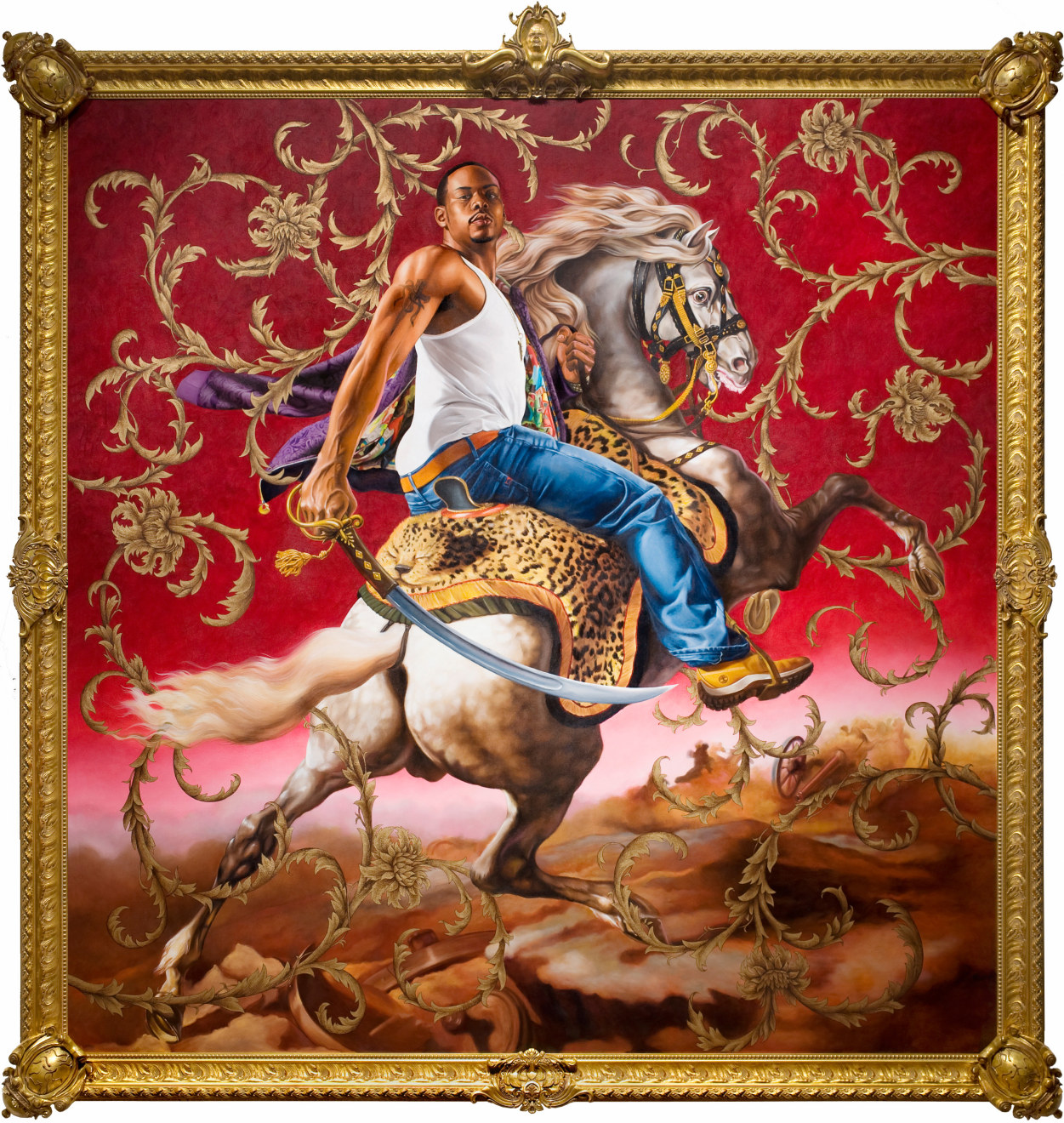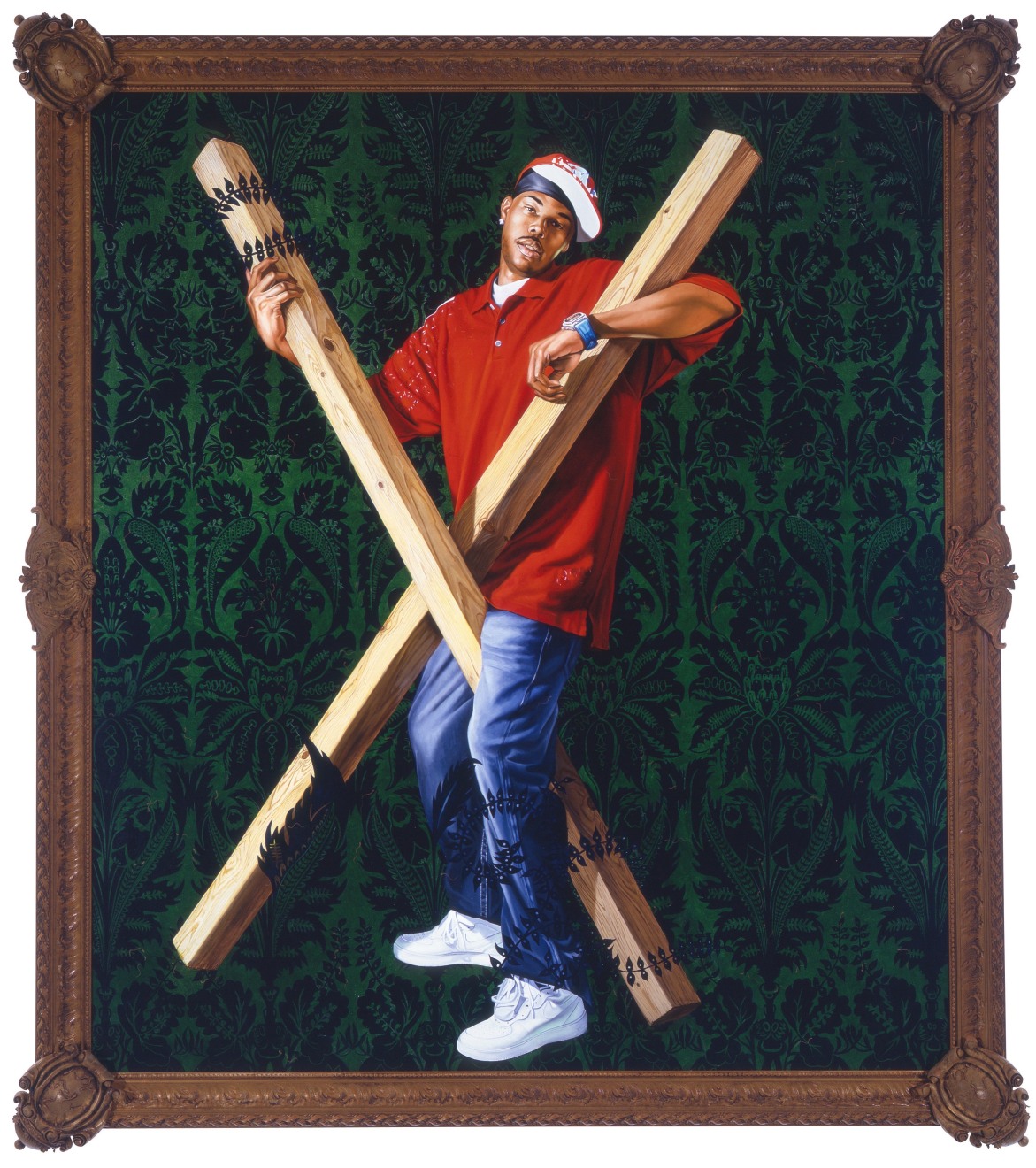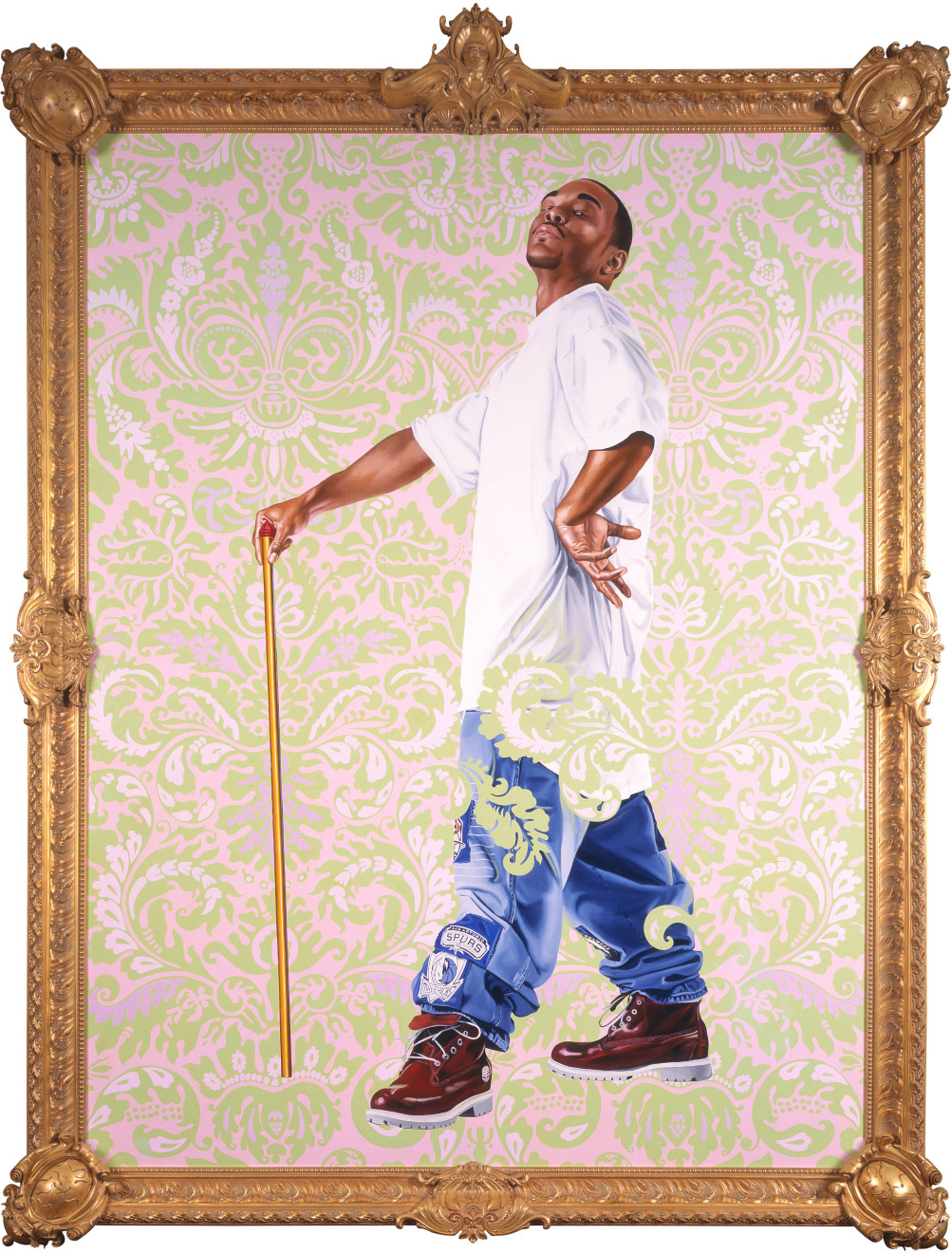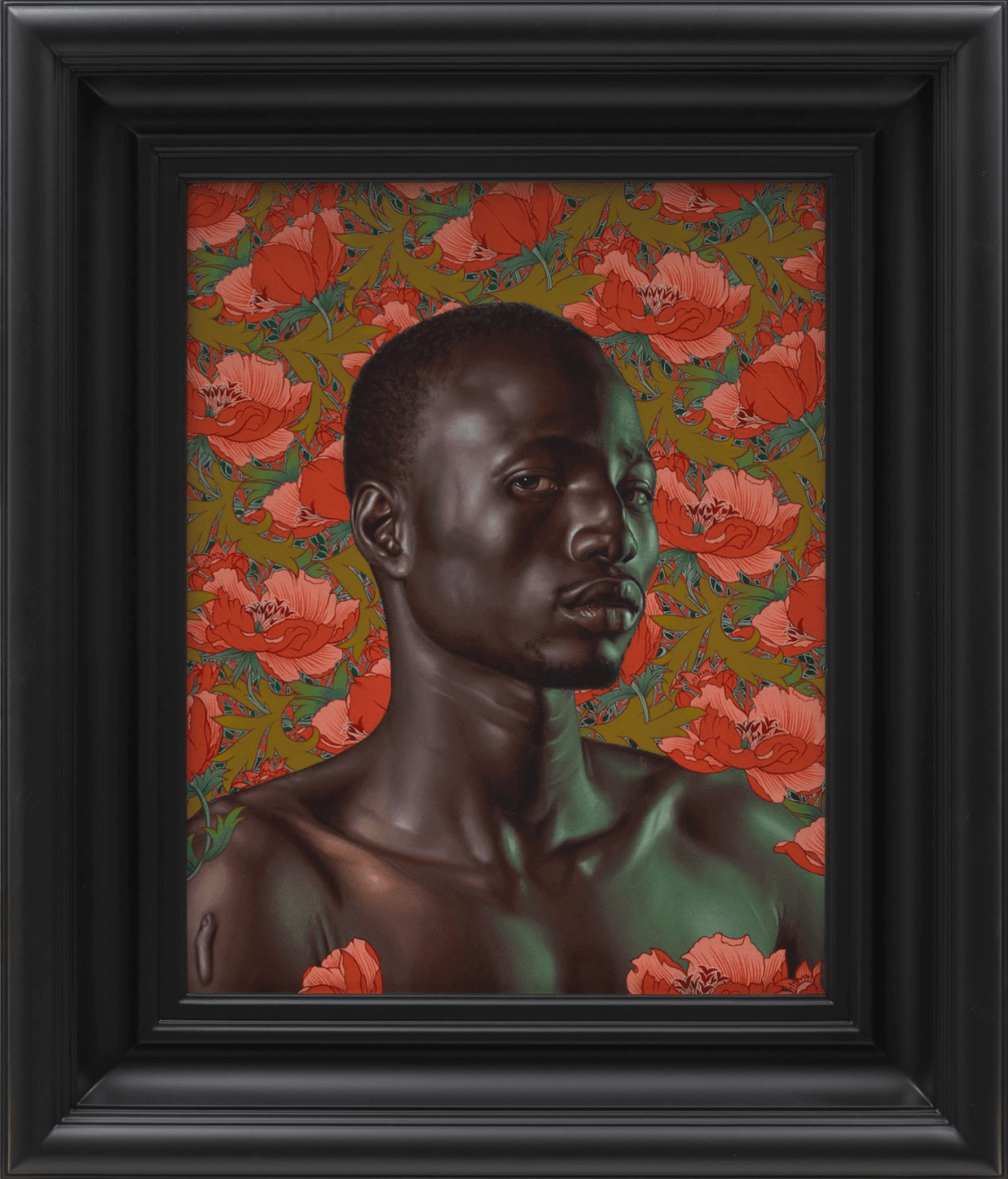
Kehinde Wiley
Portrait of Pascal Diouf, 2024
oil on canvas
painting: 24 x 18 inches (61 x 45.7 cm)
framed: 29 1/2 x 23 1/2 inches (74.9 x 59.7 cm)
unique
(KW-PA-24-010)
b. 1977
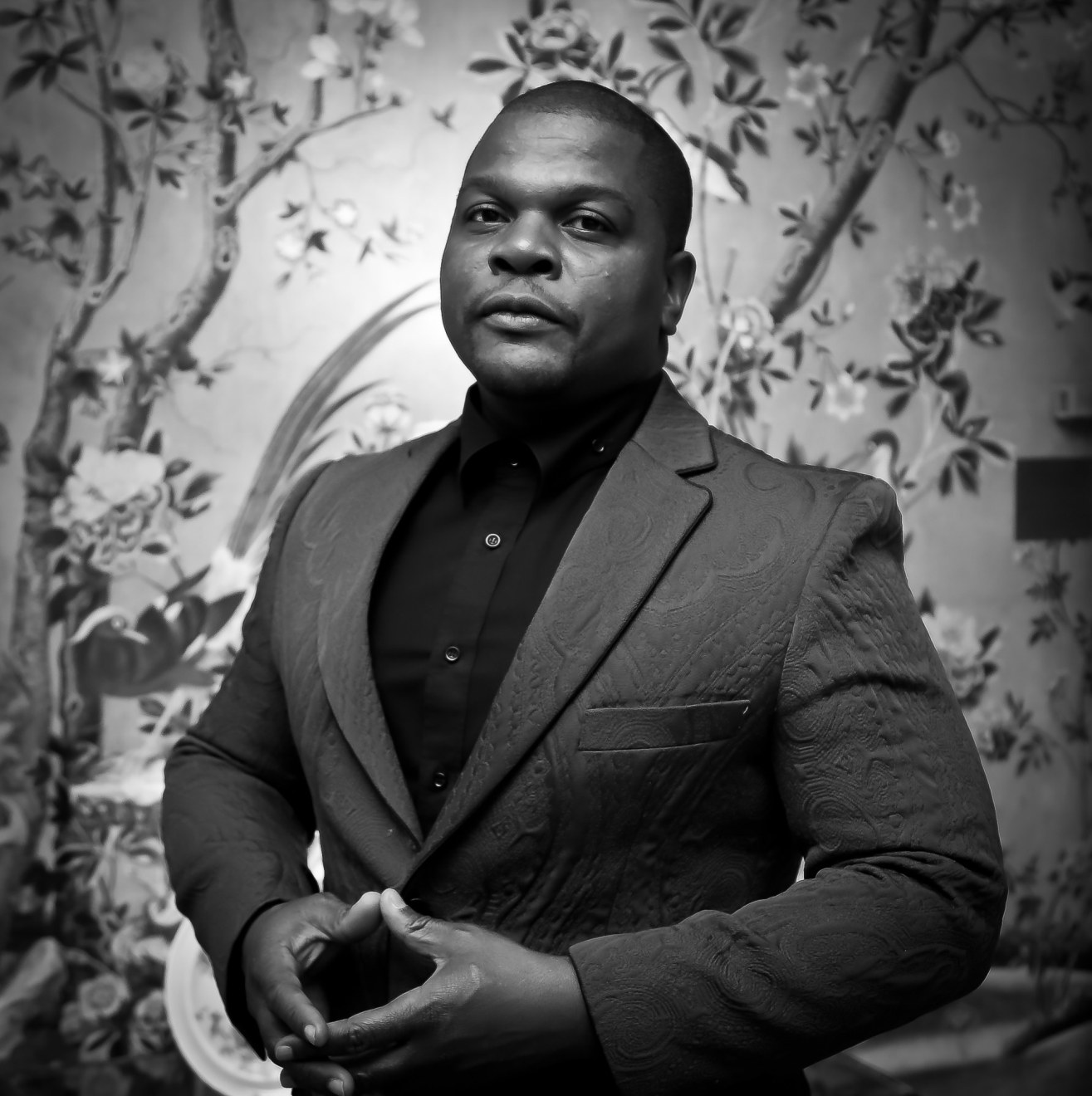
Photo by Tony Powell
Los Angeles native and New York-based visual artist Kehinde Wiley has firmly situated himself within art history's portrait painting tradition. As a contemporary descendent of a long line of portraitists--including Reynolds, Gainsborough, Titian, Ingres, and others--Wiley engages the signs and visual rhetoric of the heroic, powerful, majestic, and sublime in his representation of urban black and brown men found throughout the world.
By applying the visual vocabulary and conventions of glorification, wealth, prestige, and history to subject matter drawn from the urban fabric, Wiley makes his subjects and their stylistic references juxtaposed inversions of each other, forcing ambiguity and provocative perplexity to pervade his imagery. Wiley's larger-than-life figures disturb and interrupt tropes of portrait painting, often blurring the boundaries between traditional and contemporary modes of representation and the critical portrayal of masculinity and physicality as it pertains to the view of black and brown young men.
Initially, Wiley's portraits were based on photographs taken of young men found on the streets of Harlem. As his practice grew, his eye led him toward an international view, including models found in urban landscapes throughout the world--such as Senegal, Dakar and Rio de Janeiro, among others--accumulating to a vast body of work called, "The World Stage." The models, dressed in their everyday clothing--most of which are based on the notion of far-reaching Western ideals of style--are asked to assume poses found in paintings or sculptures representative of the history of their surroundings. This juxtaposition of the "old" inherited by the "new"--who often have no visual inheritance of which to speak--immediately provides a discourse that is at once visceral and cerebral in scope.
Without shying away from the complicated socio-political histories relevant to the world, Wiley's figurative paintings and sculptures "quote historical sources and position young black men within the field of power." His heroic paintings evoke a modern style instilling a unique and contemporary manner, awakening complex issues that many would prefer remain mute.
An Economy of Grace, Wiley’s debut exhibition at Sean Kelly gallery, marked his first-ever series dedicated to female subjects. An award-winning documentary film about the process behind this exhibition was directed by Jeff Dupre and produced by Show of Force.
Kehinde Wiley holds a BFA from San Francisco Art Institute, an MFA from Yale University and an honorary doctorate from Rhode Island School of Design. In 2002, he became an Artist-in-Residence at the Studio Museum in Harlem. Wiley’s work has been the subject of exhibitions worldwide and is in the permanent collections of numerous museums, including the National Portrait Gallery, Washington D.C.; the Los Angeles County Museum of Art; the Oak Park Public Library, the Oklahoma City Museum of Art, The Hammer Museum, Los Angeles; the Museum of Contemporary Art, Los Angeles; the Metropolitan Museum of Art, New York; the Studio Museum in Harlem; the Virginia Museum of Fine Arts, Richmond; the Denver Art Museum; the Saint Louis Art Museum; V&A East; the Walker Art Center, Minneapolis; the Yale University Art Gallery and the Yale Center for British Art; the High Museum, Atlanta; the Columbus Museum of Art; the Phoenix Art Museum; the Milwaukee Art Museum; the Jewish Museum, New York; and the Brooklyn Museum. The U.S. Department of State honored Wiley in 2015 with the Medal of Arts, celebrating his commitment to cultural diplomacy through the visual arts. In February 2018, Wiley’s portrait of Barack Obama was added to the permanent installation of presidential portraits in the Smithsonian’s National Portrait Gallery. In October of the same year, he was honored with a W.E.B. Du Bois medal for his significant contributions to African and African-American history in culture and his advocacy for intercultural understanding and human rights.
For more information, please visit the artist's website at www.kehindewiley.com.
Exploring the life and work of artist Kehinde Wiley, this film takes viewers on a journey from Wiley’s upbringing in South Central Los Angeles to his ascent as one of the world’s most iconic visual artists. Featuring interviews with the artist, his twin brother Taiwo Wiley, and his close friend and fellow artist Mickalene Thomas, the film was produced in conjunction with the exhibition "An Archaeology of Silence," making its US debut at the de Young museum in March 2023.
For Frieze Los Angeles 2022, this edition of the Art:LIVE online program features voices from the fair and an in-depth interview with Kehinde Wiley, Art Live: Frieze Los Angeles 2022, Frieze, February 20, 2022.
Kehinde Wiley in conversation with The Duke of Devonshire as part of 500 Years of Art: Summer Talks. Sotheby's. July 16, 2020.
Kehinde Wiley discusses his artistic practice and the new exhibition, Kehinde Wiley: Saint Louis, at the Saint Louis Art Museum.
CBS This Morning. "Virginia governor announces plans to take down Robert E. Lee Confederate statue in Richmond." June 5, 2020.
CBS News. "Aritst Kehinde Wiley's new statue is 'speaking back' to those looking at Confederate monuments." December 11, 2019.
"Creating an artist residency programme in Senegal." BBC News. November 18, 2019.
2018 Time 100 honoree on the legacy of painting President Obama's official portrait.
CNN Amanpour, February 13, 2018
Jerry Saltz and Kehinde Wiley Explain How Art Invents New Ways of Seeing, November 28, 2016
Kehinde Wiley creates paradigm shift in the art world, Nov. 1, 2015
artnet: Kehinde Wiley: A New Republic, Mar. 24, 2015
Artist Interview with Kehinde Wiley Mar 20, 2014
The Artist Project: Kehinde Wiley, Mar. 25, 2015
Artist reimagines classic paintings with modern twist, Jun. 4, 2015
